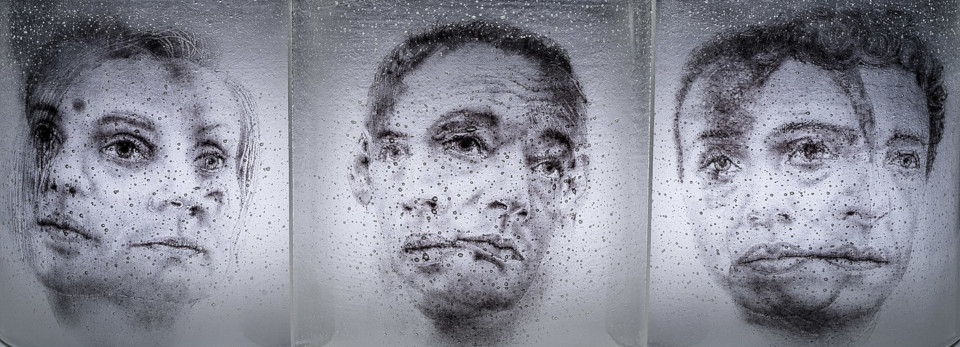Guest Editors: Victoria Addis, Sam Cutting and Julia Ditter
The works of criticism in this issue, while not intentionally organised around a theme, nevertheless cohere around ideas of relation and belonging. In the wake of the recent mass shootings in El Paso, Texas and Dayton, Ohio, and in the midst of the ongoing Brexit saga, the emphasis in a number of these articles on notions of care and kinship—those forms of relation which look to challenge and highlight violence against marginalised others—is a welcome reminder of the love and hope at the center of an interconnected world. Collectively, these four pieces not only address the construction of relationships, on both an interpersonal and a broader societal level, they also interrogate the specific conditions that contribute to mechanisms of bonding and, conversely, of othering—from the kinship possibilities of the family home or of meetings with strangers across Europe to the exclusionary tactics of systemic racism. Otherness is also addressed here via the posthuman imaginary of monstrousness, interrogating humanity’s relationship with itself and its potential futures. The fundamental questions linking these articles, therefore, are: who are we? And who do we want to be?

This issue begins with a piece by Peter Ely (Kingston University) on the notion of queer kinship in Jackie Kay’s The Adoption Papers. Ely’s article challenges the perception of Kay’s debut poetry collection as a largely uncritical celebration of transcultural adoption through an exploration of queer kinship in the text. Often conflated with her autobiographical experience as a child of Nigerian and Scottish heritage adopted by white parents, Kay’s writing has, according to Ely, been “instrumentalized” into a position of supporting kinship norms “at the expense of the more challenging political and aesthetic positions her texts have taken”. Ely posits that the alternative models of family that present themselves through examples of queer kinship in Kay’s collection in fact disrupt the liberal view of the heteronormative, nuclear family unit, questioning the dominance of this model in society.
In the second article, Donna Maria Alexander (University College, Cork) discusses Danez Smith’s Afrofuturist poetry collection Black Movie (2015) as a work of adaptation that blends ingredients from various mainstream fantasy and science fiction movies in order to construct narratives commensurate with black experience in the US. The article outlines the ways in which Smith critiques white Hollywood, and white America more broadly, by illuminating the representational shortcomings of the films it references and highlighting contemporary injustices such as police brutality and gun violence. The collection, Alexander argues, rewrites the story of black people in Hollywood cinema, inscribing wider representations of black culture and community into film history through the fantastic and futuristic elements of the films it references.
Christine Lehnen (University of Bonn) then provides an innovative perspective on reading contemporary British literature within a European framework. Taking David Szalay’s novel All That Man Is (2016) and his short story sequence, Turbulence (2018) as case studies, Lehnen outlines the features of an emergent form of British literature, which, she argues, can best be understood—not in relation to the national or the global—but as a form of “European literature made in the UK”. Lehnen characterizes these “Europeanized” works through a set of common themes, including communications across borders, and a deep concern with the question of how we approach strangers and negotiate our differences in a shared world.
In the final article of this issue, Katharina Donn (University of Augsburg) explores the figure of the zombie through Colson Whitehead’s novel, Zone One. Moving beyond the dominant imagery of the zombie as a symbol for the apocalyptic breakdown of civilization, Donn argues that the zombies in Whitehead’s novel are simultaneously representative of the alienated worker desired by the neoliberal market, and of the transgressive potential of the posthuman. In resisting the transhumanist idea of the perfectibility of the human, the figure of the zombie suggests a potential avenue of liberation from neoliberal capitalist discourses. As Donn argues, the zombie opens “a space beyond the one-way-street of the neoliberal transhuman, a tabula rasa to be re-coded and re-inhabited in order to create more ethically viable posthuman lives”.
Taken together, these pieces offer a range of insights into some of the most fundamental preoccupations of twenty-first-century life. If the contemporary is the primary focus of this journal then this issue contributes to that discourse by reflecting on what it means to belong in a mass media driven, and hyperconnected society. The articles herein explore how we navigate our own sense of belonging in relation to others and, moreover, in relation to the dominant social structures we have built. In so doing, they ultimately expose the limitations and even the dangers of these dominant structures, both for ourselves and for those we call other.
Citation
Victoria Addis, Sam Cutting, Julia Ditter, “Alluvium Editorial 7.4,” Alluvium, Vol. 7, No. 4 (2019): n. pag. Web. 22 August 2019. DOI: https://doi.org/10.7766/alluvium.v7.4.03
About the guest editors:

Victoria Addis is a PhD student at the University of Leeds where her research examines the concept of ecomasculinity in contemporary US fiction that invokes or reimagines the Old West and/or Western tropes. She is the recipient of three postgraduate essay prizes (BACLS 2017; BAAS 2018; ISAANZ 2019) and has published in venues including Studies in Comics, Western American Literature, and US Studies Online. Alongside her PhD, Victoria works as a blogger for the literary journal Ploughshares.
Website: www.victoriaaddis.com
Twitter: @victoriaaddis

Sam Cutting is completing a PhD in twenty-first century fiction at University of Brighton. His thesis focuses on the conceptualisation of technology in the contemporary novel. He teaches English at Varndean College in Brighton.

Julia Ditter completed a Masters degree in British and North American Cultural Studies at the University of Freiburg. In October, she will start a RDF-funded PhD in English Literature at Northumbria University Newcastle. Her dissertation examines the representation of borders and the environment in Scottish literature from the nineteenth century to today.

